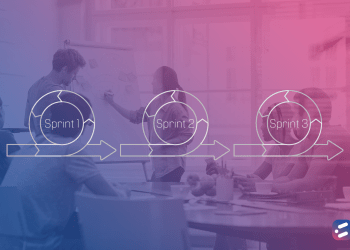Have you ever wondered how to select and prioritize features when developing a new product? While following the SDLC method of software development, new ideas or potential features may be spotted at any time. However, this does not get applied to the product development process dynamically.
Using the Agile methodology, on the other hand, a Product Backlog, built over time by the entire agile team, holds a comprehensive list of selected and prioritized features recommended by all project stakeholders. Stakeholders and team members can add recommended product features to the backlog, from which features can be incorporated into the product based on priority.
Creativity and Continuous Innovation
One of the great advantages of agile product development is its emphasis on continuous improvement and development. The agile team’s role is one of continuous innovation, rather than being confined to a single round of planning or assigned tasks. Their role includes having an open mind to new ideas.
It’s not always possible to implement every idea or product feature recommended by the team, of course, but it’s good to have options available in order to create a high-quality final product.
Recommendation and Refinement of Ideas
Consider ideas like:
- Automation of manual processes
- Creating value to the client by adding new features
- User requests on new features
These ideas are noted in detail into the Backlog during the product grooming phase. It’s important to maintain detailed descriptions of existing bugs, instructions and even a step-by-step process on how to implement the recommended fix and feature.
There are tools available to store a list of ideas and track current development status.
During agile grooming, ideas recommended by the team are noted, refined and streamlined. Very ‘large’ ideas are broken down into smaller scopes in order to incorporate into the next sprint. Items pulled into any new sprint are expected to be completed in that new sprint with regular intervals of delivery deadlines and expected to be delivered on time to the client.
Grooming and Prioritization
As part of ‘backlog grooming’, the recommended list of features is sorted and prioritized. The scope of each task is also examined and defined. Based on preference and scope, tasks are suitably added to the sprint.
Product backlog grooming is the critical stage of the development process, with more attention given to tasks given high preference or priority by the product owner. At the same time, the irrelevant tasks are removed from the backlog.
At the conclusion of each product backlog grooming meeting, the date of the next grooming meeting and review of the previous should be completed. Product backlog adds considerable value to the product and its development process by recording the schedule of tasks given by and to team members during each meeting.
With transparent communication among team members, and a sequence of review undertaken on the grooming meetings, the success of the product development process is ensured.
Transparency and Accountability
While the product owner is, ultimately, responsible for maintaining the product backlog, every member of the team should have access to the backlog. After all, it’s only with complete involvement of the team that optimal product development can occur.
‘Backlog Grooming’ is conducted as a team, including the scrum team. In addition to the practical benefits of applying more minds to this aspect of the project, the scrum team has an additional need to access the product backlog – and a unique role to play. As well as adding their own suggestions and ideas, the scrum team keeps technical debt and the plan to pay it back in mind while examining the features recommended.
The product owner is responsible for creating the product backlog, getting feedback from the client and running product development based on recommendations from the team.
Building a strong agile product backlog with teamwork, transparency, creativity and planning, can help with innovation, efficient development and value creation in product development.













